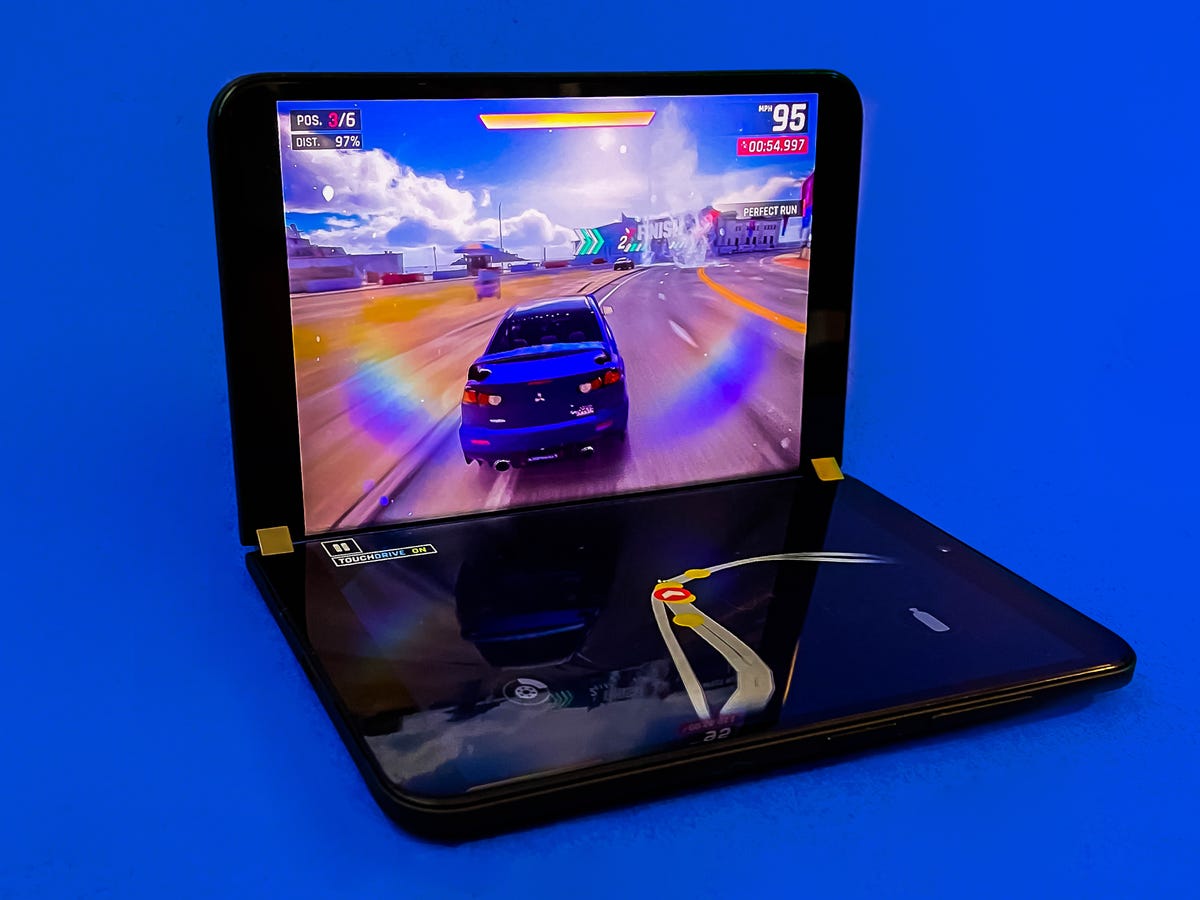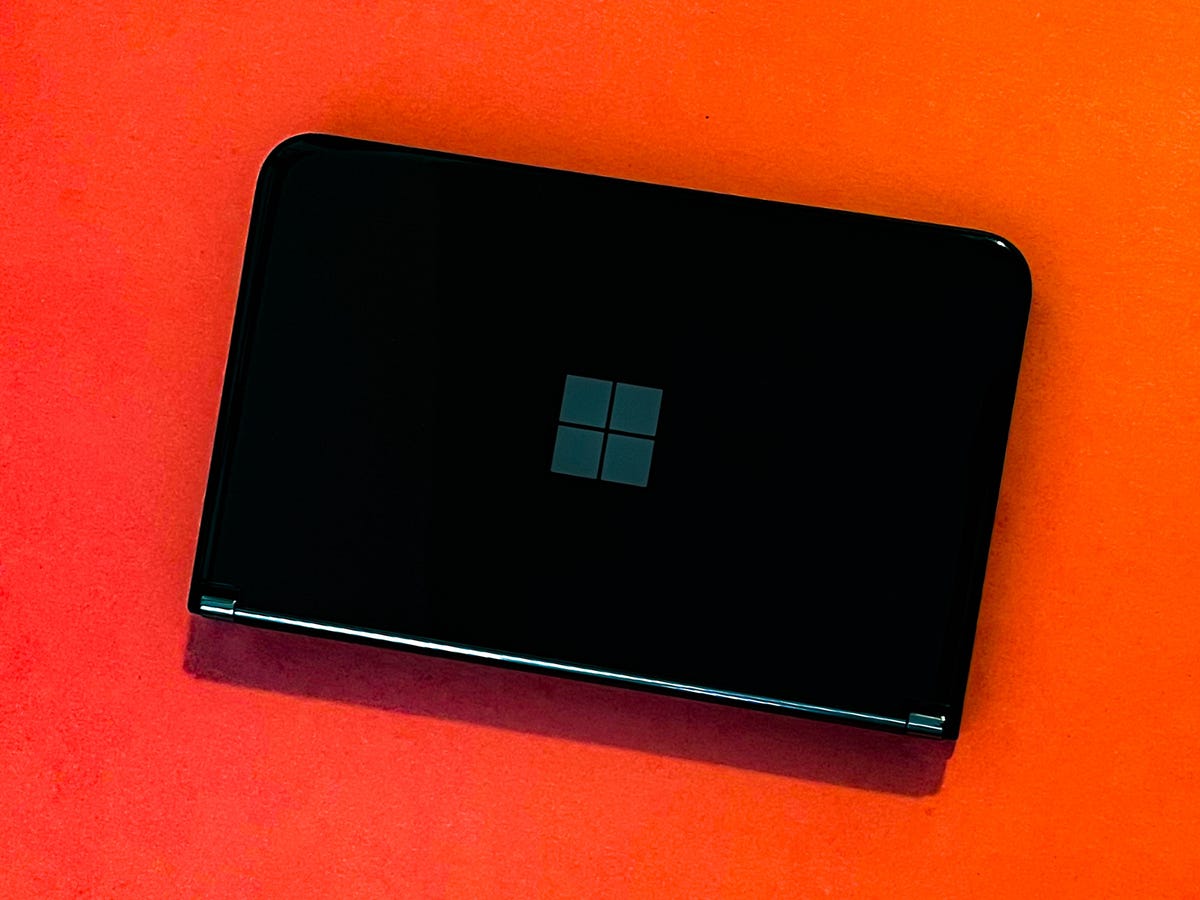Microsoft has a complicated history with hardware. Though its Surface line popularized the idea of tablets that can double as laptops, it hasn’t been able to replicate that success with mobile devices. The now-defunct Windows Phone platform, Zune music player, Kin phones and Microsoft Band are proof.
Now mounting evidence is starting to indicate that Microsoft’s two-screened smartphone, the Surface Duo, could meet the same fate. Last year, Windows Central reported that Microsoft had scrapped plans for a Surface Duo 3 and instead plans to launch a more traditional foldable phone with a bendable screen, similar to the devices in Samsung’s Galaxy Z Fold line. A patent application that surfaced this week (no pun intended) further fueled speculation that Microsoft could be moving in this direction, coming after questions have been raised about how long the company will continue to support its existing Duo devices.
Yes, the Surface Duo has issues. Despite its unconventional and striking design, it hasn’t been ideal for basic phone-related tasks, like snapping photos and quickly responding to texts on the go. Occasional software glitches have also hampered its appeal.
But the promise behind a phone with two screens isn’t lost on me, and I hope Microsoft isn’t completely giving up on it.
A Microsoft representative said the Surface Duo “remains an important part of the Surface portfolio.” The company added that Android and security updates would be provided for three years following the device’s release, which means 2024 should be the last year the Surface Duo 2 gets updates.
Read more: Considering a Foldable Phone? How to Decide if One Is Right for You
Two screens can be better than one

The Surface Duo 2 running a game.
Microsoft did more than just create a split screen experience and optimize apps for different screen sizes; it thought about how apps should function differently given the Surface Duo’s unusual design. When it worked, it felt like I was actually using apps in different ways.
The Amazon Kindle app, for instance, turned the Surface Duo 2 into a digital book, with each screen serving as an electronic page. The Xbox Game Pass app made the Surface Duo 2 feel like a Nintendo 3DS-esque handheld gaming console, but without the physical buttons. Even less-exciting apps like Outlook felt different on the Surface Duo, with Microsoft dedicating one entire screen to your inbox and the other to a full email.
Samsung’s approach — a phone that turns into a tablet — is much easier to comprehend, even if it is less ambitious. The elevator pitch is easier to grasp for most people, while Microsoft had to really prove the Surface Duo 2’s purpose.
Pivoting to a foldable would make it harder to stand out

Microsoft’s Surface Duo 2, closed.
Similar to other Microsoft inventions (remember the SPOT Smart Watch from the early 2000s?), maybe the Surface Duo was just ahead of its time. Microsoft never really wanted to call the Surface Duo a phone, and anyone who’s used one probably understands why. But given its price and functionality, it needed to excel as a smartphone to succeed — a requirement it ultimately couldn’t meet.
If a new Surface Duo were to come out in a couple of years, I wonder if things would be different. Tech giants, including Microsoft, are incorporating generative AI (the flavor of AI behind ChatGPT) into their software, allowing for new use cases. Right now the biggest way that’s showing up in software is through the introduction of photo editing features like Google’s Magic Edit and assistants such as Microsoft’s Copilot. But some companies, like AI startups Rabbit and Brain.AI, are trying to make operating systems more intuitive by serving up information as needed rather than relying on apps to get things done.
If that idea eventually takes off and spreads to more devices, like smartwatches and wireless earbuds, maybe a device like the Surface Duo would make more sense. What if a large language model ran on your smartwatch — which communicated with your earbuds — and made it easier to send texts or get directions? You can technically do those things today on your watch, but doing so on your phone is still generally simpler.
If AI makes it easier to rely on these ancillary tech products, maybe you wouldn’t need to pull out your phone as often. Perhaps that would change the phone’s role from a gadget we depend on for basic everyday tasks to more of a portable leisure device, like a tablet or laptop, for reading, playing games and reviewing emails. That sounds a lot like the portable computer Microsoft envisioned in the first place when it unveiled the Surface Duo, and I hope it hasn’t totally abandoned that vision.

